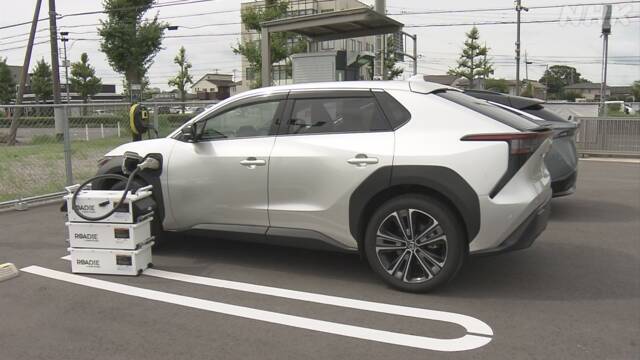EV=In anticipation of the spread of electric vehicles in the future, various charging services are being developed. In addition to the conventional fixed type, there is also a portable type in case the battery of an EV runs out, and there is a succession of moves to improve the convenience of charging.
Improving the convenience of charging is an issue for the spread of EVs, and in August, the Ministry of Economy, Trade and Industry (METI) compiled a draft guideline that significantly raised the target for charging facilities to be installed by 8.
Under these circumstances, a trading company in Tsukuba City, Ibaraki Prefecture, sold portable EV chargers to corporate customers and began lending them in September.
This charger weighs more than 1 kg per battery and can be carried by car, and with four batteries, it can travel about 30 km on a single charge.
Assuming use when an EV runs out of battery in a place where there are no charging facilities around, JAF=Japan Automobile Federation has started a trial introduction for road services since August.
Hiroo Kawai, project manager of a trading company that handles these chargers, said, "With the spread of EVs, we expect that there will be a 'power shortage' in which the battery runs out while driving, and demand will increase."
With regard to EV charging, Japan energy trading companies are moving to partner with American manufacturers with the aim of popularizing wireless EVs that can be charged without using cables, and various services are being developed and disseminated.

